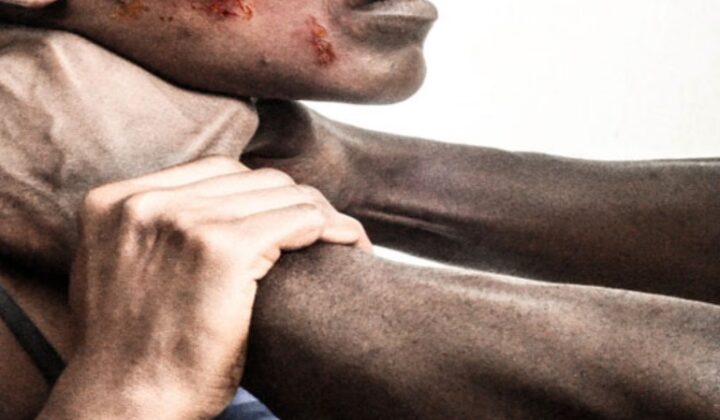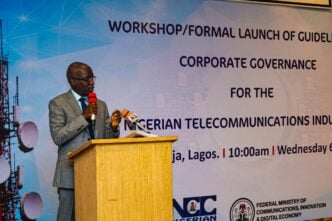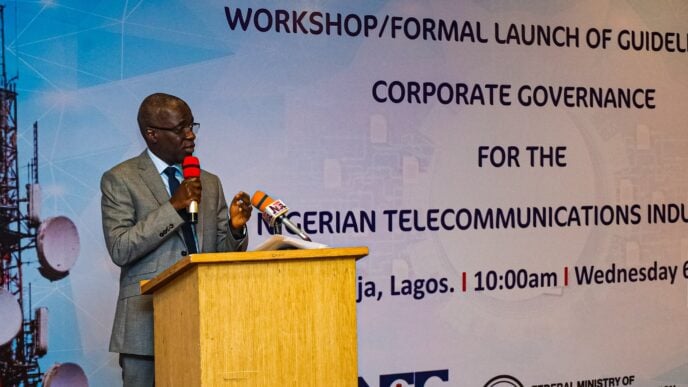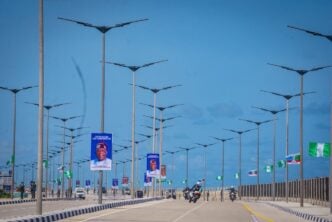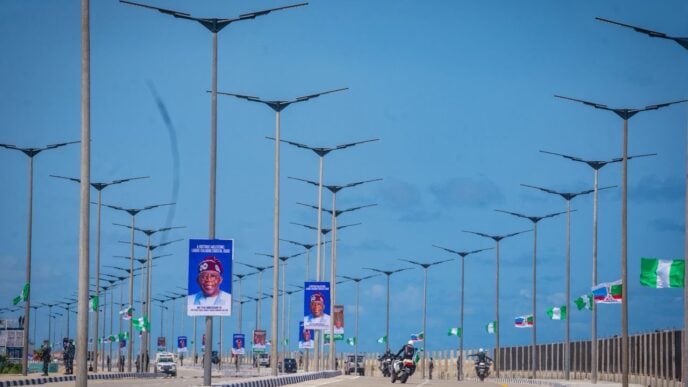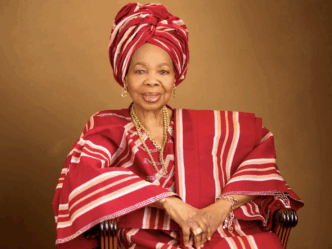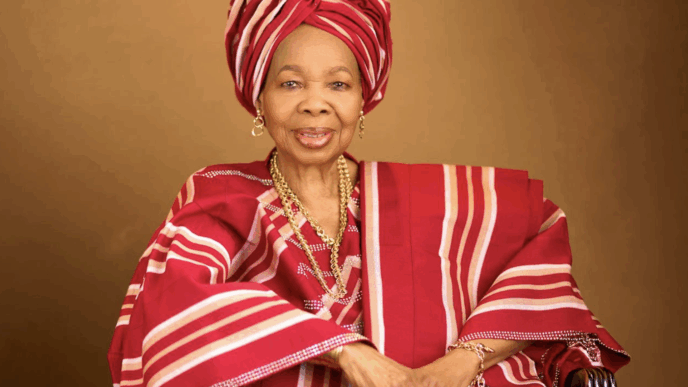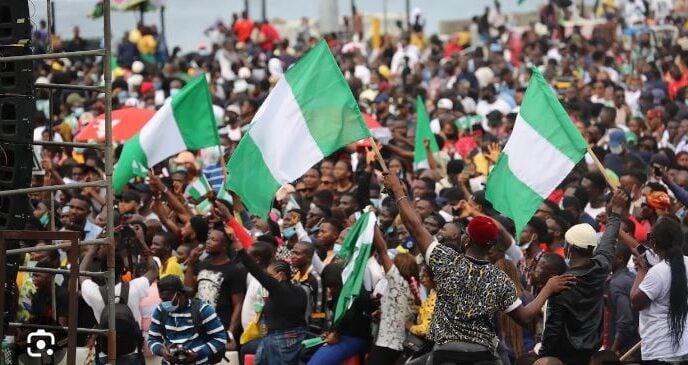Spanish coastguards rescue three Nigerian migrants from ship's rudder after 11-day voyage from Lagos to Canary Islands... Photo credit: SALVAMENTO MARÍTIMO/Twitter
In an era where migrants are blamed for everything from job losses to cultural decline, from Brexit Britain to Trump’s America and South African Xenophobia, Nigeria stands out for a curious paradox. That paradox is how Nigerians rarely target the foreigners who live and work in the country, despite the challenges that the people face.
Across the globe, anti-immigrant sentiment has become a political force. In the United States, Donald Trump’s 2016 “build-the-wall” campaign turned immigration into a defining wedge issue; surveys showed that well over half of his voters listed immigration as a “critical threat”. That same sentiment drove his return to the White House in 2025.
The United Kingdom’s 2016 Brexit referendum, a narrow 52% to 48% vote by the people to leave the EU, was fuelled by fears that refugees and Eastern Europeans were “taking jobs”, putting pressure on social services and changing local communities. Also in Europe, resentment toward Moroccan and Sub-Saharan African migrants is often weaponised in local politics in Spain and The Netherlands.
In Africa, waves of Xenophobic attacks in South Africa between 2008 and 2019 left several people dead; mostly Zimbabweans, Malawians and Nigerians. Kenya was not left out as protests against Chinese contractors erupted, following accusations of sharp labour practices.
Advertisement
We Keep It in the Family
Nigeria has its own crises: high unemployment, overstretched cities, deep inequality and long-running insecurity. Yet, unlike many countries under similar pressure, Nigerians seldom vent their frustration on the foreigners within their borders.
Instead, Nigerians save their sharpest criticism for themselves. We call ourselves out. We pray against our supposed “village people” holding us back. We troll our leaders on X/Twitter and drag our celebrities without mercy. Our women accuse women from other ethnic groups of “snatching” their men, yet rarely direct that same ire at the women from other countries who openly profess their fondness for the Nigerian male.
Advertisement
Our fiercest quarrels rarely cross the border. We reserve the sharpest arrows for one another, in WhatsApp groups, on radio call-in shows, in partisan shouting matches, in endless tribal banter that can turn bitter. Even when we take jabs at other countries, Nigerians will tell you that it is never without provocation, that we only clap back when someone else throws the first punch.
Too often, our sense of national unity feels fragile: more like a sketch in the constitution than a bond we all live by. Yet, remarkably, we almost never go after the foreigners who have long lived, worked and prospered among us.
A Lesson Learned the Hard Way
To be clear, Nigeria is no sanctuary and Nigerians are no saints. History reminds us that we once scapegoated outsiders, and paid for it.
Advertisement
In 1983, amid an oil-price slump and economic crisis, the Shehu Shagari Government ordered the mass expulsion of more than a million West African migrants, mostly Ghanaians, blaming them for rising unemployment. Migrants fled in haste, carrying their belongings in the red-blue chequered plastic bags that then became known as “Ghana-Must-Go” bags. Another round of expulsion followed in 1984 unde the Muhamadu Buhari Military Government. These deportations left deep scars on Nigeria’s reputation and on relations with neighbours for decades.
Since that fiasco, Nigeria has largely avoided large-scale expulsions or anti-immigrant street violence.
Still, Nigeria’s relative tolerance is not without tension. There are occasional online grumblings, often in whispers, about some Chinese-run mines in mineral-rich states allegedly mistreating local workers or using exploitative contracts, and from time to time, there are complaints about certain Lebanese-owned factories over labour conditions or local-sourcing practices. These murmurs may trend briefly on social media. But they rarely translate into mass street movements or political slogans.
A Century of Shared Hustle
Advertisement
Foreigners are not outsiders to Nigeria’s economy; they are woven into it.
The Lebanese merchants who arrived in significant numbers in the 1920s and built enduring family businesses in textiles, construction and retail in Lagos and Kano. The Indians who expanded into trade after independence and still dominate segments of pharmaceuticals, plastics and light manufacturing.
The Chinese, virtually absent 25 years ago, now Nigeria’s single largest import partner and key investors in railways, power and highways. Ghanaians, Kenyans and South Africans hold important posts in Nigerian banks, consultancies and telecoms. Liberians and Sierra Leoneans, who fled the 1990s civil wars, have integrated into Nigerian cities. The oil industry continues to be dominated by Western expatriates, often carving out comfortable niches.
Advertisement
Nigerians notice who controls which sector; we may grumble about unfair competition or poor labour conditions, but we do not push for them to exit. In 2022, Nigeria’s main import partners were China, Netherlands, Belgium, India and the U.S.; top export destinations included India, Spain, Netherlands, Indonesia and the U.S.
In search for who to blame, Nigerians often look to their governments for their mismanagement and corruption. They do not focus their bile on the foreign individuals building businesses.
Advertisement
The Cultural Lens: Hospitality Runs Deep
Across Nigeria’s diverse ethnic traditions lies a shared reverence for the guest.
Advertisement
The Yorubas have a proverb “Aléjọ l’ọba” loosely translated to mean “The guest is king.”
The Igbos say “Ọbịa bụ uru, ọ bụghị ihe ọjọọ” meaning “A guest is a benefit, not a misfortune.” Up North, the Hausas say “Baƙo ya zo da arziki” meaning “A guest comes with blessings.”
These are not just sayings; they are social codes that have survived urbanisation and modern stress. Nigerians may quarrel bitterly among themselves, but a cultural duty of hospitality tempers how we treat outsiders.
Equally powerful is a national admiration for hustle. One unspoken rule cuts across class and ethnicity: “If you hustle and succeed, we respect you.” Whether you’re an Igbo electronics trader in Alaba, a Yoruba textile seller in Balogun, or a Lebanese contractor in Lagos, respect comes from the grind.
The Political Lens: Anger Turned Inward
Nigeria’s politics has conditioned the nation to point fingers inward. Leaders, rather than migrants, are seen as the architects of dysfunction. On radio call-ins, TV talk shows and especially on X/Twitter, the chorus is constant: “Our government failed us”; “Our leaders betrayed us.”
Even during the xenophobic attacks on Nigerians in South Africa, reprisal protests at home focused on symbols of South African corporate power in Nigeria – Shoprite supermarkets and MTN offices. South Africans citizens in Lagos and Abuja were largely left alone. In fact, greater anger was directed at the Nigerian Government’s failure to protect its citizens abroad.
A Rare Paradox Worth Protecting
In an era when climate change, conflicts and economic shocks will continue to drive unprecedented migration, Nigerians’ instinct to direct frustration inward rather than at outsiders is a paradox worth protecting.
This resilience is no accident. It grows out of deep-rooted traditions of hospitality, respect for enterprise, and a political habit of holding our own leaders, not immigrants, to account. Together, these codes have spared us the divisive anti-immigrant populism destabilising other nations.
That spirit is a national asset. With fairer policies, stronger labour protections, and more inclusive politics, Nigeria can remain a place where migrants and investors alike find opportunity and where grievances stay in the family.
In a fractured world, this under-recognised strength and quiet lesson in tolerance are resources that we would do well to nurture with care.
Oma writes from Madrid, Spain, on Leadership, Culture and Change.
Views expressed by contributors are strictly personal and not of TheCable.


